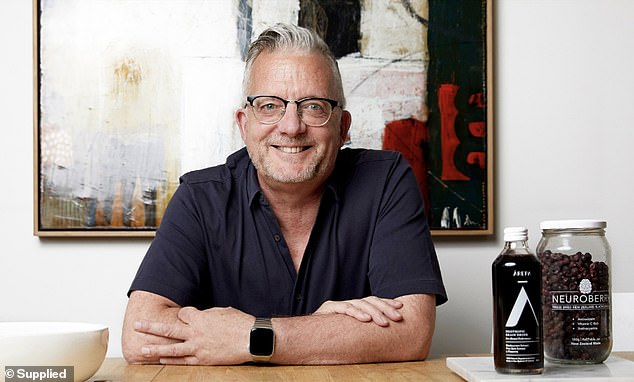In the past, our parents used to warn us about sitting too close to the TV or listening to loud music, emphasizing that our bodies are not well-equipped to handle the extremes of advanced technology.
And last year, the rise of the term ‘brain rot’ was a sign we’ve accepted another nasty tech side-effect – screens are making us stupid.
Today, an increasing number of individuals are experiencing the adverse impacts of the constant influx of quick information from platforms such as TikTok and Instagram Reels. Simultaneously, our attachment to electronic devices has reached unprecedented levels.
The issue has become so apparent that even on TikTok itself, a platform often criticized for exacerbating social media addiction in younger generations like Gen Alpha (15 years and below) and Gen Z (ages 15 to 28), users are engaging in discussions about the observable long-term consequences.
Some claim they’re more easily distracted since developing screen addictions during the mind-numbing Covid lockdown years. Others say their ability to connect ideas and focus on long-term goals has diminished.
But they all agree on one thing: we’ve gotten dumber.
Respected neuroscientist Professor Andrew Scholey tells me screen addiction stems from a survival instinct ingrained in humans over the course of centuries.
He believes this is also the key to curing it.

Respected neuroscientist Professor Andrew Scholey (pictured) says social media addiction is driven by ancient instincts which make us vulnerable to negative information
‘The problem is there’s an algorithm which dictates what shows up on your feed and humans have evolved in such a way that negative information is more salient,’ he says.
‘It was more important to remember to run away from a tiger hiding in a bush than [to remember] where the nice fruit was, because the former has more to do with survival.
‘There’s a ton of research showing that negative things are much more attention grabbing than positive.
That’s why when we spend any length of time on social media – mostly consuming provocative, negative or ‘rage-bait’ content which algorithms tend to prefer – ‘it can become very overwhelming’, says Prof Scholey.
Prof Scholey notes that as a result, it will take time for our brains to heal from brain rot, but emphasises that it can be done.
He believes the best treatment for brain rot is very similar to that of brain fog, where increased stress on the brain causes a decrease in function.
‘Some of it goes back to exercising and a good diet but the rest is also so important,’ he explains.
‘There’s a fantastic book by Dr Claudia Hammond called The Art of Rest which talks about the value of doing recreation, things that don’t cause stress.

Oren (pictured with his daughter) began limiting his 10-year-old’s screen time after noticing it was having a noticeable effect on her health and behaviour
‘It’s different for everyone. For some people it’s gardening, for some people it’s sports, for others it’s meditating or having a bath.
‘By doing these things we’re helping our brain get into a default state network in which we daydream and let our mind wander [as opposed to needing constant stimulation], and there’s evidence that’s healthy.’
Prof Scholey felt encouraged seeing brain rot listed as ‘word of the year’ because it showed awareness about screen and social media addiction was growing.
‘It’s like how mental health awareness has grown over the last five to 10 years, which has been really important,’ he tells me.
‘That will likely start to spill over into people being aware of spending too much time on social media and bring people to implement ways to limit their usage.’
For those looking to help speed up the process of healing their brains from screen addiction and brain rot, Professor Scholey recommends a series of products he helped develop with drinks and supplements brand Ārepa.
Ārepa’s products feature the Neuroberry, a blackcurrant from New Zealand that has been proven to improve mental performance and alertness by assisting neurotransmitters.
‘There’s really exciting research from New Zealand that identified the molecule Sarmentosin – which is also a compound in the New Zealand blackcurrant – helps dopamine and serotonin,’ Prof Scholey says.

The ScreenCoach app uses a rewards system to encourage children to ‘earn’ screen time by doing other, more productive activities
‘What was really important in that research was human feeding studies – where people had a cannula in their arm and had blood drawn every 10 minutes and analysed.
‘It found people who were given the equivalent of a handful or two of berries began having increased levels of dopamine and serotonin in 10 minutes with the effects lasting four hours.
‘That was just from one dose – the same dosage we use in Ārepa.’
Another company helping screen addicts, with a focus on children, is ScreenCoach.
Melbourne father Oren, 48, began using the app – which rewards users for doing chores and activities with screen time – last year.
ScreenCoach has several features that parents have found to be instrumental in weaning their children off excessive screen time. Firstly, it limits and schedules the time a child can use the device. But more importantly it gives children the ability to earn additional screen time by completing choses, homework or playing outdoors, which fosters a sense of responsibility and encourages varied activity.
Many children who find themselves playing outdoors with friends in order to ‘earn’ extra screen time soon realise the real world is far more interesting, and end up losing interest in the iPad altogether, happy customers have reported.
Oren and his wife had given their 10-year-old daughter an iPad just two years prior but were already noticing its negative effects on her health and behaviour, and on some days found her glued to the device from the time she came home from school to when she went to bed.
‘It’s very problematic. When I was a kid, we’d all be around the TV and watch things together but iPads are only for one user,’ Oren tells us.
‘She mostly plays Roblox. It’s a platform that has many games and other players can create their own games so it’s never-ending and very addictive.
‘Before, she would do many activities like painting and playing with Lego, but once she got her own screen, she would always prefer to be on it. She could spend up to five hours a day on it.’
The iPad quickly became a source of tension for the young family, who moved to Australia from Israel in 2019.
‘There’d be a lot of arguments because we didn’t like that she was on the iPad so much,’ Oren says.
‘If we tried to take it away, she would cry and become stressed. When we’d mention spending less time looking at the screen, she’d get nervous and edgy.
‘It was sad for us because we bought it with good intentions. She likes to read, so we thought she could use it for reading.’
But since using the ScreenCoach app, Oren has noticed a massive change in his daughter’s behaviour.
‘Now she uses the iPad for two hours a day and she’s doing her hobbies again,’ Oren says.
‘She’s painting, she loves art, and doing her piano exercises.
‘She also knows she needs to do her jobs to earn more screen time, so there’s much less tension because we’re not limiting her. It’s more organic and she has a routine.’
The masterminds behind ScreenCoach, psychologist Steph Kakris and her tech-whiz husband Peter, tell me they don’t just use it for their kids; they also use it themselves.
‘I’m totally addicted to my phone,’ Peter says.
‘I mean, I’m very, very mindful of spending time away from it and putting it down, but I check it for everything.
‘If I want to see the weather, check my calendar, fact-check something – the first thing I do is pick up my phone.
‘We’ve become so attached to them. So often we hear ScreenCoach is helping kids and people will ask, “Does it help the parents too?” because we’re all facing the same problem.’
Steph adds the issue is widespread and well-documented among psychologists.
‘Every professional who works with children will tell you the health impacts from too much screen time. They’re massive,’ she says.
‘We know that kids are not doing enough physical exercise at school. Their focus at school has dropped off.
‘Teachers are pulling their hair out because they can’t get kids to concentrate at school and a lot of it is because of these continuous dopamine hits from the screen time at home.
‘The Royal Children’s Hospital Melbourne has done a survey asking parents about their health concerns for their children, and social media is the number one issue.’









